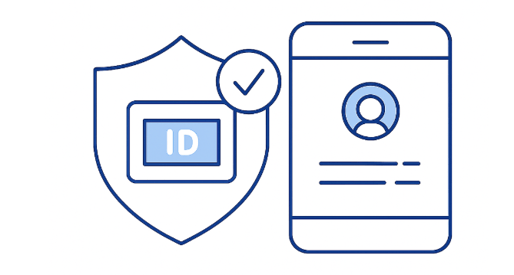Decentral identity – secure, compliant, and privacy-preserving ID
This approach combines cryptography, data governance, and regulatory compliance to solve one of finance’s toughest problems: how to verify identity without compromising privacy.
Partisia’s work in privacy-preserving computation makes decentral identity not just possible, but practical — delivering trust without centralization.
How decentral identity works
Institutions can verify authenticity through Zero-Knowledge Proofs (ZKP) or Multi-Party Computation (MPC) without seeing the underlying information.
A standard decentral identity system includes:
- Identity issuer: creates and signs the verified credential (such as a bank or government).
- Identity holder: controls their credential through a secure wallet or app.
- Verifier: checks authenticity through encrypted validation.
This model directly supports GDPR’s data minimization principle and aligns with the EU’s upcoming European Digital Identity (EUDI) framework.
Related: See confidential computation for the cryptographic foundation behind secure identity systems.
Benefits for compliance and security
Decentral identity directly addresses these requirements by reducing the exposure of personal data.
Key benefits include:
- Regulatory alignment: meets FATF’s KYC and data privacy standards.
- Reduced identity theft: credentials can’t be stolen from a central database.
- Faster onboarding: users share verified proofs instead of documents.
- Cross-border interoperability: credentials remain verifiable across jurisdictions.
- Fraud prevention: verifications are cryptographically linked to verified sources.
Related: Read Customer Due Diligence (CDD) to see how identity assurance supports broader AML compliance.

Integration with digital ID verification and CIAM systems
By integrating decentral identity principles, these systems can evolve into federated trust networks where verification is shared securely across participants.
This hybrid approach allows:
- Secure use of ID Verification (IDV) services that respect data privacy.
- Integration with Transaction Risk Scoring and Fraud Detection models without exposing identity data.
- Strong interoperability with Social Security Number (SSN) validators and existing national identity registries through privacy-preserving computation.
Challenges and adoption readiness
- Interoperability issues: lack of global standards between identity frameworks.
- Regulatory uncertainty: uneven recognition of cryptographic proofs as valid identity evidence.
- User adoption barriers: limited awareness among consumers and service providers.
- Integration costs: legacy infrastructure not designed for distributed architectures.
“Decentral identity solves the compliance paradox. It enables verification without visibility — a concept that regulators are beginning to accept as both lawful and secure.”
– Mark Medum Bundgaard, CPO, Partisia
This reflects a turning point where privacy technology becomes the foundation for regulatory trust.
Reusable ID is coming. Here’s how to prepare and lead with privacy.
A forward-looking guide on how reusable digital identities, powered by decentralized infrastructure, can enable trusted transactions across sectors. The report covers key concepts behind eIDAS 2.0, decentralized identity (DID), and how to prepare for the future of consent-based access.

What's inside?
-
A shift in digital identity
-
What’s driving the change
-
What reusable identity enables
-
eIDAS 2.0: the moment to move
-
Use cases that are already live
and more...
Partisia’s perspective – advancing privacy-first decentral identity
Partisia’s privacy-preserving data collaboration platform delivers that capability, making secure, compliant identity verification possible across sectors.
Using Multi-Party Computation (MPC) and Confidential Computing, institutions can:
- Verify identities without accessing raw personal data.
- Link ID Verification (IDV) and Social Security Validators securely into decentralized workflows.
- Support Perpetual KYC (pKYC) by validating identity updates in real time.
- Enable cross-border identity collaboration under GDPR and FATF.
About Partisia
We are an innovative software company and a trusted partner empowering companies to compute on encrypted data. Providing a platform where data from individuals, governments and private companies are able to stay encrypted and protected, and still fully enabled. Partisia is founded by pioneers within Multi-Party Computation and advanced cryptography.


2025.10.26

.png?width=520&height=294&name=confidential-computing-techniques%20(2).png)
